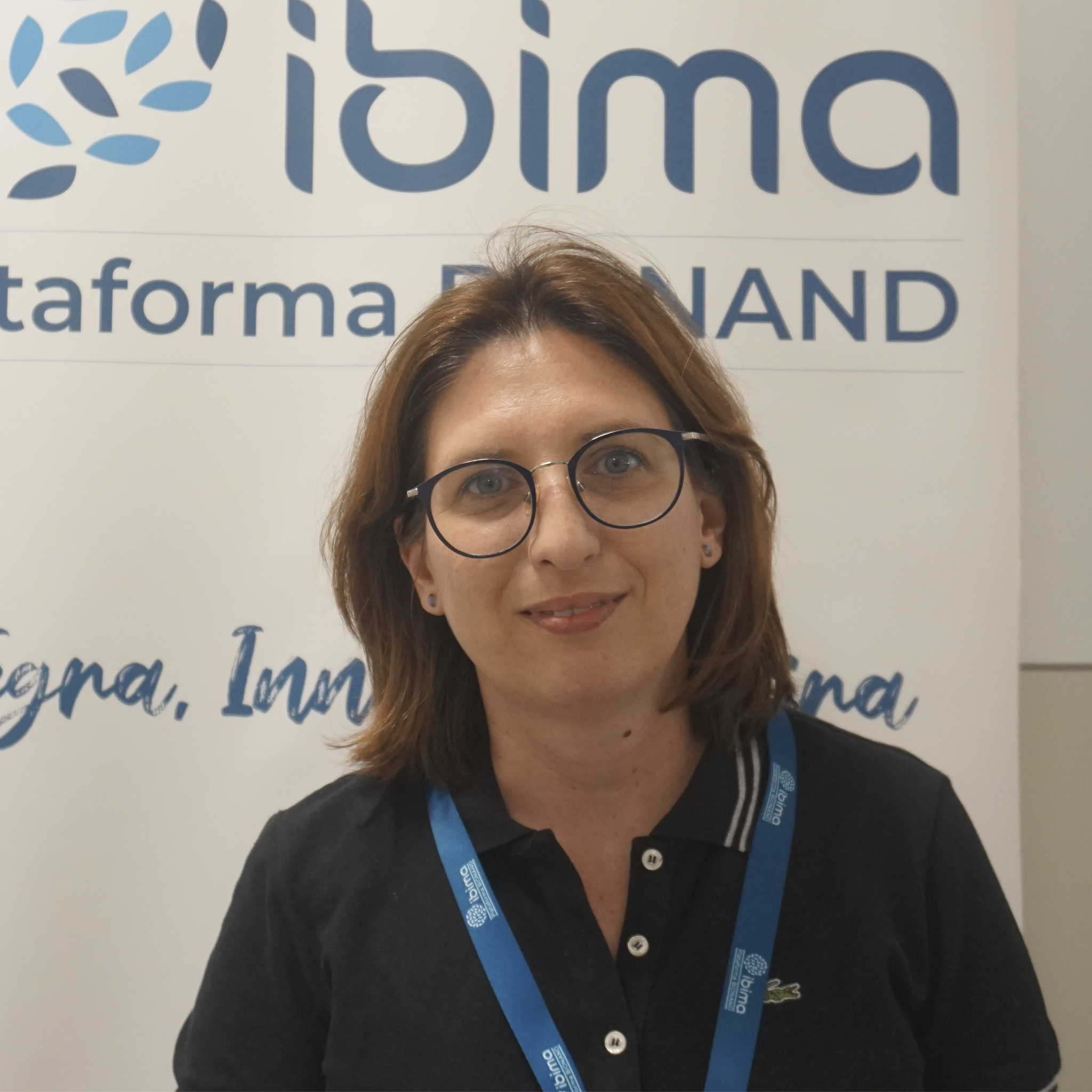Obesity, Diabetes and their Comorbidities: Prevention and Treatment
Lines of Research
01. Intestinal microflora, insulin resistance, and obesity.
02. Role of adipobiology in metabolic diseases.
03. Metabolic effect of bariatric surgery.
04. Environmental factors in the genesis of obesity and diabetes (brown adipose tissue and endocrine disruptors).
05. New celular and molecular mechanisms of inflammation in metabolic diseases: obesity, diabetes, and cancer
06. Genetic and epigenetic factors in the prevention, progression, and treatment of type 2 and gestational diabetes
07. PREDIMED PLUS Study.
08. Estados nutricionales alterados (enfermedad metabólica y malnutrición) y complicaciones. Biomarcadores y estudio de composición corporal.
09. Dietotherapeutic approach to obesity and cardiovascular disease: role of ketosis, intermittent fasting, physical exercise, and chronobiology.
10. Mitochondrial fitness in metabolic diseases.
11. Endocrine-metabolic complications of obesity
12. Analysis of response biomarkers to weight loss intervention. Precision medicine in the management of insufficient weight loss
13. Obesity and brain aging.
14. Immunity in metabolic diseases.
15. Role of pregnancy and breastfeeding in the development of metabolic diseases.
16. Dietary and pharmacological evaluation of obesity: effects of levothyroxine on body composition, metabolic biomarkers, and morphofunctional response in a personalized medicine context.
17. Physiological factors and mechanisms involved in weight regain. Therapeutic strategies for the prevention and management of weight regain.
- Research projects
- Clinical studies
- Scientific Publications
- Technological Offers
- Industrial property records
No results
The page you requested could not be found. Try refining your search, or use the navigation above to locate the post.
Comparación del efecto de tirzepatida frente al de dulaglutida sobre los acontecimientos cardiovasculares mayores en pacientes con diabetes de tipo 2 (SURPASS-CVOT)
FRANCISCO JOSÉ TINAHONES MADUEÑO – ENSAYO CLINICO COMERCIAL – III – RECA METANETWORK
Cambios en la capacidad de digestión y secreción pancreática exocrina en pacientes tras una cirugía gástrica
JOSÉ MANUEL GARCÍA ALMEIDA – ESTUDIO POSAUTORIZACION COMERCIAL – No aplica – MFAR CLINICAL RESEARCH SL
Antagonismo del receptor de glucocorticoides en el tratamiento del síndrome de Cushing estudio (GRACE): ensayo en fase III, con dobleenmascaramiento, controlado con placebo y con retirada aleatorizada sobre la eficacia y la seguridad del relacorilant.
FRANCISCO JOSÉ TINAHONES MADUEÑO – ENSAYO CLINICO COMERCIAL – III – ICON CLINICAL RESEARCH LTD
Antagonismo del receptor de glucocorticoides en el tratamiento del hipercortisolismo en pacientes con adenomas suprarrenales que secretan cortisol o hiperplasia (GRADIENT): Estudio de fase III, aleatorizado, doble ciego y comparado con placebo sobre la eficacia y la seguridad de relacorilant
FRANCISCO JOSÉ TINAHONES MADUEÑO – ENSAYO CLINICO COMERCIAL – III – RECA METANETWORK
A Phase 3, Randomized, Double-Blind, Placebo-Controlled Study to Investigate the Effect of Lepodisiran on the Reduction of Major Adverse Cardiovascular Events in Adults with Elevated Lipoprotein(a) who have Established Atherosclerotic Cardiovascular Disease or Are at Risk for a First Cardiovascular Event – ACCLAIM-Lp(a)
FRANCISCO JOSÉ TINAHONES MADUEÑO – ENSAYO CLINICO CON MEDICAMENTOS – III – LILLY, S.A.
A Phase 3, Randomized, Double-Blind, Placebo-Controlled, Event-Driven Study to Investigate the Effect of Retatrutide on the Incidence of Major Adverse Cardiovascular Events and the Decline in Kidney Function in Participants with Body Mass Index =27 kg/m2 and Atherosclerotic Cardiovascular Disease and/or Chronic Kidney Disease
FRANCISCO JOSÉ TINAHONES MADUEÑO – ENSAYO CLINICO CON MEDICAMENTOS – III – LILLY, S.A.
A Phase 2b Multicentre, Randomised, Double-Blind, PlaceboControlled, Parallel Group Dose-Ranging Study to Assess the Efficacy, Safety and Tolerability of Zibotentan and Dapagliflozinin Patients with Chronic Kidney Disease with Estimated Glomerular Filtration Rate (eGFR) Between 20 and 60 mL/min/1.73 m2 (Zenith-CKD)
FRANCISCO JOSÉ TINAHONES MADUEÑO – ENSAYO CLINICO COMERCIAL – II – ASTRAZENECA AB
A Double-blind, Randomized, Placebo-controlled, Multicenter Study Assessingthe Impact of Olpasiran on Major Cardiovascular Events in Patients with Atherosclerotic Cardiovascular Disease and Elevated Lipoprotein (a)
FRANCISCO JOSÉ TINAHONES MADUEÑO – ENSAYO CLINICO CON MEDICAMENTOS – I – AMGEN SA
Au@16-pH-16/miR-21 mimic nanosystem: An efficient treatment for obesity through browning and thermogenesis induction – BIOMEDICINE & PHARMACOTHERAPY
Lhamyani, S; Gentile, AM; Mengual-Mesa, M; Grueso, E; Giráldez-Pérez, RM; Fernandez-Garcia, JC; Vega-Rioja, A; Clemente-Postigo, M; Pearson, JR; González-Mariscal, I; Olveira, G; Bermudez-Silva, FJ; El Bekay, R – 2024 – 10.1016/j.biopha.2023.116104
Effect of Semaglutide on Regression and Progression of Glycemia in People With Overweight or Obesity but Without Diabetes in the SELECT Trial – DIABETES CARE
Kahn, SE; Deanfield, JE; Jeppesen, OK; Emerson, SS; Boesgaard, TW; Colhoun, HM; Kushner, RF; Lingvay, I; Burguera, B; Gajos, G; Horn, DB; Hramiak, IM; Jastreboff, AM; Kokkinos, A; Maeng, M; Matos, ALSA; Tinahones, FJ; Lincoff, AM; Ryan, DH – 2024 – 10.2337/dc24-0491
Influence of smoking on cardiometabolic profile and surgical outcomes in patients with primary aldosteronism: a cohort study – EUROPEAN JOURNAL OF ENDOCRINOLOGY
Araujo-Castro, M; Fano, MP; González-Boillos, M; Pascual-Corrales, E; Ramírez, PP; Rojas-Marcos, PM; García-Cano, A; Ruiz-Sanchez, JG; Vicente, A; Gómez-Hoyos, E; Casterás, A; Puig-Perez, A; Sanz, IG; Recasens, M; San Millan, RB; César, MJP; Guardiola, PD; Perdomo, C; Manjón-Miguélez, L; Román, AR; Lázaro, CR; Recio, JM; Morales-Ruiz, M; Calatayud, M; López, NJ; Meneses, D; Nuñez, MS; Ribas, EM; Sánchez, AS; Diaz, CG; Lamas, C; Tous, MD; Serrano, J; Michalopoulou, T; Rodrigo, ST; Chamorro, RR; Aguila, FJ; Mateo, EMM; Gutiérrez-Medina, S; Hanzu, FA – 2024 – 10.1093/ejendo/lvae143
Physical activity shifts gut microbiota structure in aged subjects with overweight/obesity and metabolic syndrome – BIOLOGY OF SPORT
Ruiz-Limón, P; Muralidharan, J; Gomez-Perez, AM; Murri, M; Vioque, J; Corella, D; Fito, M; Vidal, J; Salas-Salvadó, J; Torres-Collado, L; Coltell, O; Atzeni, A; Castañer, O; Bulló, M; Bernal-López, MR; Moreno-Indias, I; Tinahones, FJ – 2024 – 10.5114/biolsport.2024.133005
Type 1 diabetes-related distress: Current implications in care – EUROPEAN JOURNAL OF INTERNAL MEDICINE
Rodríguez-Muñoz, A; Picón-César, MJ; Tinahones, FJ; Martínez-Montoro, J – 2024 – 10.1016/j.ejim.2024.03.030
Downregulated Adipose Tissue Expression of Browning Genes With Increased Environmental Temperatures – JOURNAL OF CLINICAL ENDOCRINOLOGY & METABOLISM
Oliveras-Cañellas, N; Moreno-Navarrete, JM; Lorenzo, PM; Garrido-Sánchez, L; Becerril, S; Rangel, O; Latorre, J; Vargas, ED; Pardo, M; Valentí, V; Romero-Cabrera, JL; Oliva-Olivera, W; Silva, C; Diéguez, C; Villarroya, F; López, M; Crujeiras, AB; Seoane, LM; López-Miranda, J; Frühbeck, G; Tinahones, FJ; Fernández-Real, JM – 2024 – 10.1210/clinem/dgad469
Beneficial Effects of Xanthohumol on Metabolic Syndrome: Evidence from In Vitro and Animal Model Studies – INTERNATIONAL JOURNAL OF MOLECULAR SCIENCES
Gómez-Zorita, S; Proença, C; Fernández-Quintela, A; Moreno-Indias, I; Portillo, MP – 2024 – 10.3390/ijms252212434
Effects of the Ketogenic Diet on Strength Performance in Trained Men and Women: A Systematic Review and Meta-Analysis – NUTRIENTS
Vargas-Molina, S; Murri, M; Gonzalez-Jimenez, A; Gómez-Urquiza, JL; Benítez-Porres, J – 2024 – 10.3390/nu16142200
Integrative clinical, hormonal, and molecular data associate with invasiveness in acromegaly: REMAH study. – European journal of endocrinology
Sampedro-Nunez, Miguel; Herrera-Martinez, Aura Dulcinea; Ibanez-Costa, Alejandro; Rivero-Cortes, Esther; Venegas, Eva; Robledo, Mercedes; Martinez-Hernandez, Rebeca; Garcia-Martinez, Araceli; Gil, Joan; Jorda, Mireia; Lopez-Fernandez, Judith; Gavilan, Inmaculada; Maraver, Silvia; Marques-Pamies, Montserrat; Camara, Rosa; Fajardo-Montanana, Carmen; Valassi, Elena; Dios, Elena; Aulinas, Anna; Biagetti, Betina; Alvarez Escola, Cristina; Araujo-Castro, Marta; Blanco, Concepcion; Paz, de Miguel; Villar-Taibo, Rocio; Alvarez, Clara V; Gaztambide, Sonia; Webb, Susan M; Castano, Luis; Bernabeu, Ignacio; Pico, Antonio; Galvez, Maria-Angeles; Soto-Moreno, Alfonso; Puig-Domingo, Manel; Castano, Justo P; Marazuela, Monica; Luque, Raul M – 2024 – 10.1093/ejendo/lvae045
Precision or Personalized Nutrition: A Bibliometric Analysis – NUTRIENTS
Hinojosa-Nogueira, D; Subiri-Verdugo, A; Díaz-Perdigones, CM; Rodríguez-Muñoz, A; Vilches-Pérez, A; Mela, V; Tinahones, FJ; Moreno-Indias, I – 2024 – 10.3390/nu16172922
No results
The page you requested could not be found. Try refining your search, or use the navigation above to locate the post.
No results
The page you requested could not be found. Try refining your search, or use the navigation above to locate the post.
Members
-
Researcher in ChargeSerá Investigador de este nivel los Investigadores Responsable que lideren un grupo de investigación del Instituto y sus Co-IR. Esta categoría puede incluir investigadores muy excepcionales en su disciplina.

Francisco José Tinahones Madueño
-
Co-investigator in ChargeSerá Investigador de este nivel los Investigadores Responsable que lideren un grupo de investigación del Instituto y sus Co-IR. Esta categoría puede incluir investigadores muy excepcionales en su disciplina.

Manuel Macías González
-
Co-Investigadora ResponsableSerá Investigador de este nivel los Investigadores Responsable que lideren un grupo de investigación del Instituto y sus Co-IR. Esta categoría puede incluir investigadores muy excepcionales en su disciplina.

Isabel Moreno Indias
-
Investigador/as SéniorSerán aquellos que tengan una actividad investigadora de al menos 5 años en la etapa posdoctoral. Estos investigadores estarán adscritos a un Grupo de Investigación liderado por un Investigador Responsable. Las funciones serán las que le tenga asignadas su IR.
Pueden liderar una línea de investigación de alguno de los grupos de investigación del Instituto, con financiación competitiva propia, y con potencial para llegar a convertirse responsable de un grupo de investigación.
No results
The page you requested could not be found. Try refining your search, or use the navigation above to locate the post.
-
Investigador/a Asistencial Colaborador/aSerá Investigador Asistencial Colaborador el Investigador que no reúne la consideración de Investigador Posdoctoral. Estarán adscritos a un Grupo de Investigación liderado por un IR. Las funciones serán las que le tenga asignada su IR.
No results
The page you requested could not be found. Try refining your search, or use the navigation above to locate the post.
-
Investigadores/as posdoctorales y/o juniorEsta etapa posdoctoral estará restringida a Investigadores del Instituto que tengan el título doctor y no contemplados en los perfiles posteriores. Durante su etapa posdoctoral pueden llegar a liderar proyectos de I+D+i como Investigadores Principales, aunque aún no hayan establecido un nivel significativo de independencia. Además, pueden tener actividades de docencia y/o asistencial más allá de su trabajo de investigación.
No results
The page you requested could not be found. Try refining your search, or use the navigation above to locate the post.
-
Investigadores/as predoctorales y/o en formación
Los investigadores predoctorales y/o en formación serán aquellos investigadores que realizan investigaciones bajo supervisión en una línea de investigación orientada a la resolución de problemas de salud. Incluye aquellos investigadores que están cursando un doctorado (incluyendo a los contratados Río Hortega)
No results
The page you requested could not be found. Try refining your search, or use the navigation above to locate the post.
-
Technical staff
Los investigadores predoctorales y/o en formación serán aquellos investigadores que realizan investigaciones bajo supervisión en una línea de investigación orientada a la resolución de problemas de salud. Incluye aquellos investigadores que están cursando un doctorado (incluyendo a los contratados Río Hortega)
No results
The page you requested could not be found. Try refining your search, or use the navigation above to locate the post.
